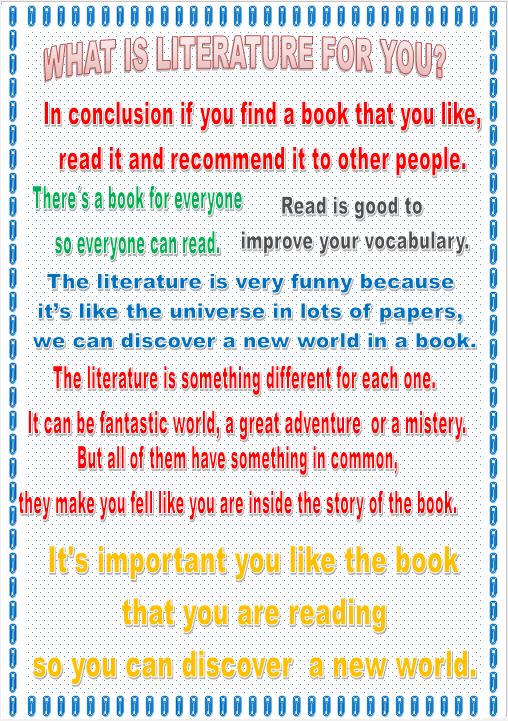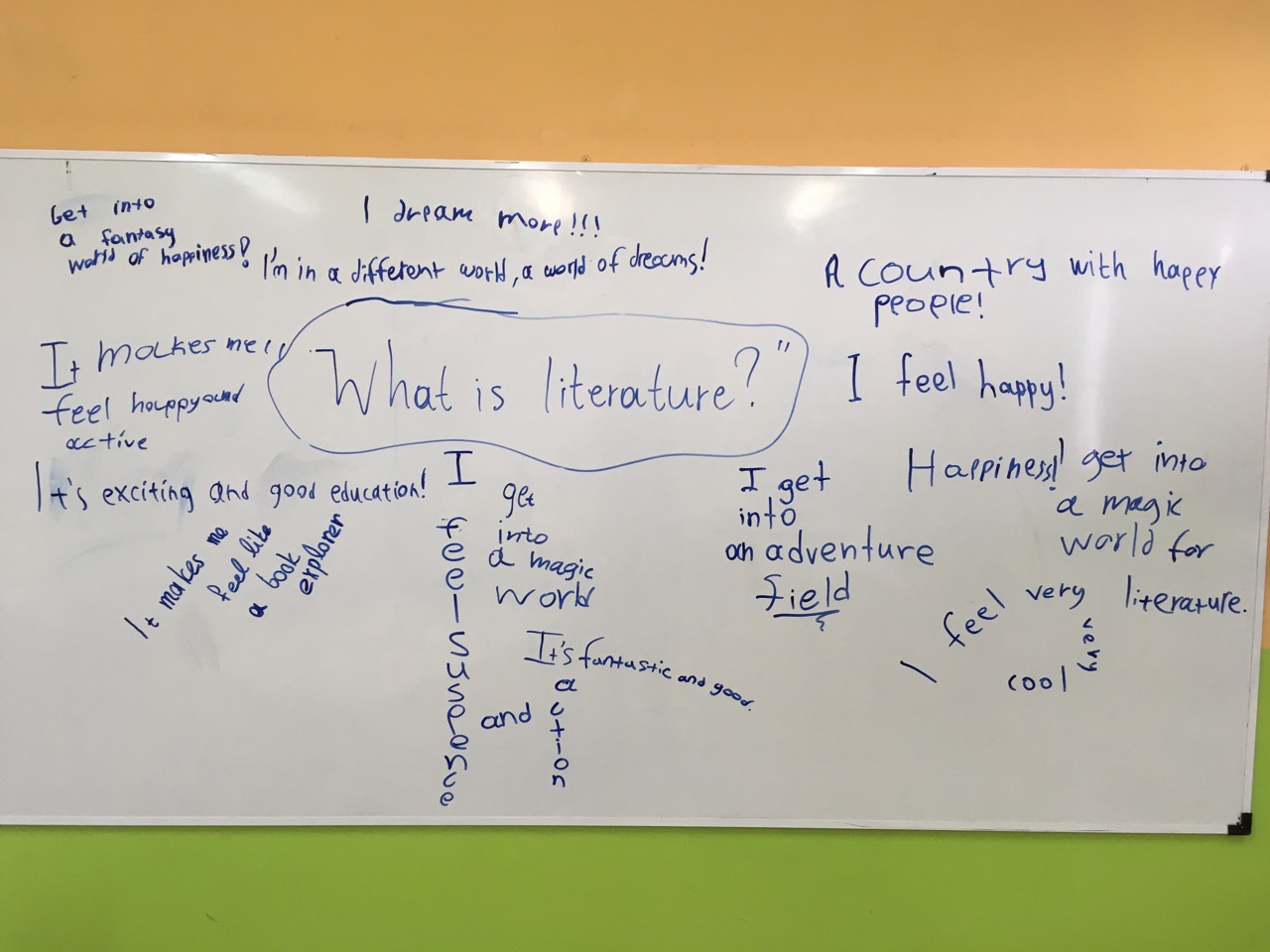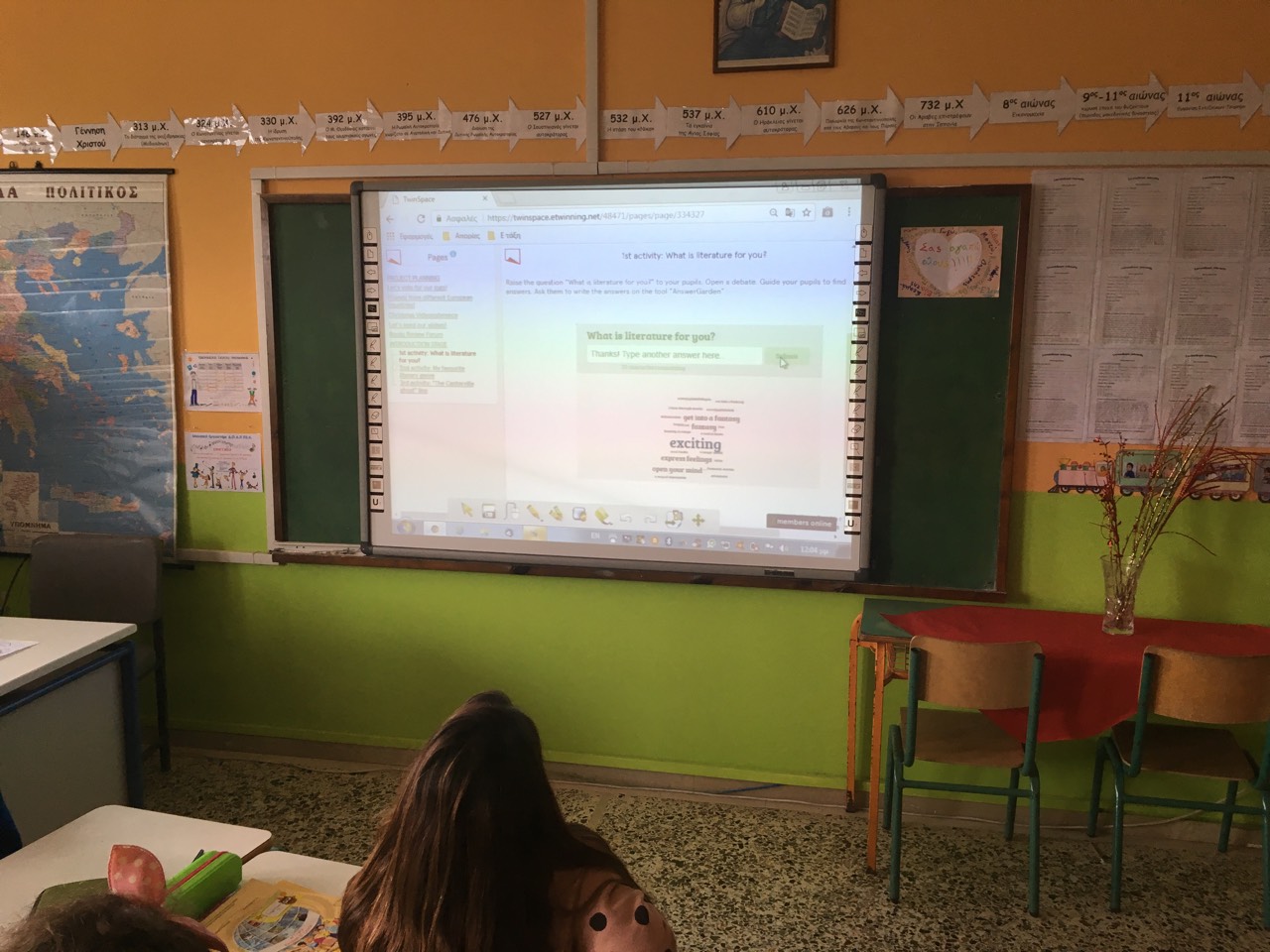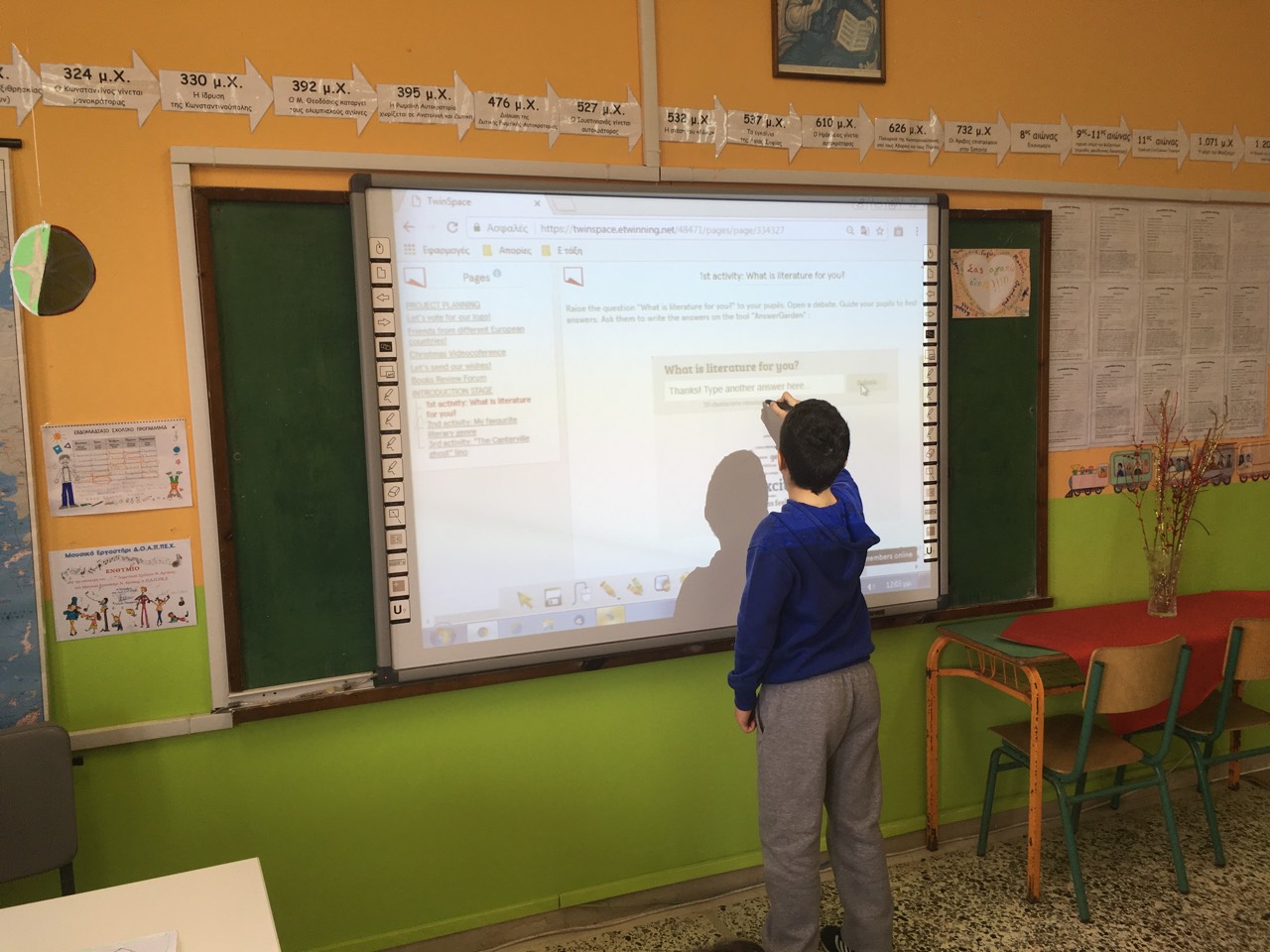Raise the question "What is literature for you?". Open a debate. Guide your pupils to find the correct answers. Ask them to write the answers on the tool "AnswerGarden" :
CEIP ABENCERRAJES GRANADA, SPAIN
 The students of Abencerrajes school held the debate to decide what literature is for them, for this the following steps were taken: - Each student explained what literature is and during these exhibitions some students told their classmates that they do not like reading at all. - Other students explained to their classmates why they like reading and they advised them books which could be interesting for them. - After the interventions of all the pupils, the students who expressed that they did not like reading decided to read some of the recommended readings by their classmates. - Finally, in small groups, definitions about "what is literature for you?" were decided. There were five proposals, selected in teams. The most voted was chosen to upload it in the "Answer Garden". The students and myself have enjoyed doing this activity, it has been a didactic and rewarding experience. In this image you can read the agreed conclusions among all the students.
The students of Abencerrajes school held the debate to decide what literature is for them, for this the following steps were taken: - Each student explained what literature is and during these exhibitions some students told their classmates that they do not like reading at all. - Other students explained to their classmates why they like reading and they advised them books which could be interesting for them. - After the interventions of all the pupils, the students who expressed that they did not like reading decided to read some of the recommended readings by their classmates. - Finally, in small groups, definitions about "what is literature for you?" were decided. There were five proposals, selected in teams. The most voted was chosen to upload it in the "Answer Garden". The students and myself have enjoyed doing this activity, it has been a didactic and rewarding experience. In this image you can read the agreed conclusions among all the students.
WHAT'S LITERATURE FOR YOU 1 on Biteable.
CEIP SERRANO CLAVERO SCHOOL, REQUENA, SPAIN
As all students were sitting in small groups of four or five, first we were asked to think about what literature meant to them, with our teacher´s help. So, each group came up with very interesting ideas that were written on the whiteboard, as a brainstorm. Then, individually, we wrote on a piece of paper their idea of what literature is. The next day, we went to the computers room to add our ideas into the digital tool "Answer Garden". We also voted our favourite literary genre on the tool which was on the subpage "2nd activity" and finally looked for information about the characters in the story The Canterville Ghost (subpage 3rd activity).
Here is a picture slide presentation to show you how we worked. We hope you like it!
Gema Sanchez de Slidely by Slidely Slideshow
3rd Primary of N. Artaki, Greece
First, we had our classroom discussion about the term literature and some other relevant word, such as blurb, cover, writer - reader point of view, genre etc.
Then, we talk about feelings, ideas and dream-worlds.


